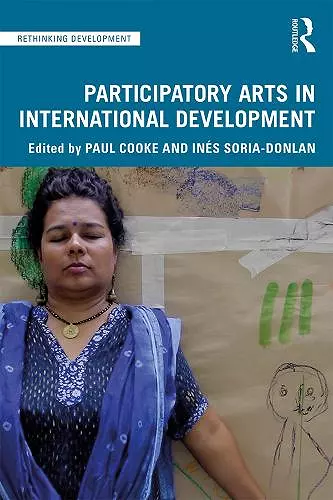Participatory Arts in International Development
Paul Cooke editor Inés Soria-Donlan editor
Format:Hardback
Publisher:Taylor & Francis Ltd
Published:27th Aug '19
Currently unavailable, and unfortunately no date known when it will be back
This hardback is available in another edition too:
- Paperback£41.99(9780367024970)

This book explores the practical delivery of participatory arts projects in international development. Bringing together an interdisciplinary group of academics, international development professionals and arts practitioners, the book engages honestly with the competing challenges faced by the different groups of people involved.
Participatory arts are becoming increasingly popular in international development circles, fuelled in part by the increased accessibility of audio-visual media in the digital age, and also by the move towards participatory discourses in the wake of the UN’s Agenda 2030. The book asks:
- What do participatory arts projects look like in practice, and why are they used as an international development tool?
- How can we develop practical and sustainable development projects on the ground, localising best practice according to cultural, economic and linguistic contexts?
- What are the enablers of, and barriers to, successful participatory initiatives, and how can we evaluate past projects to learn and feed into future projects?
Written to appeal to both academics and practitioners, this book would also be suitable for teaching on courses related to participatory development, community arts, and culture and development.
"This important and timely book brings together arts practitioners, academics and senior research and policy figures from NGOs with first-hand experience of the power of the arts to disrupt and refashion neoliberal development paradigms. They analyse projects that put a premium upon indigenous knowledge derived from grassroots participation as an antidote to the colonial models, releasing forces of self-development in order that different futures may be imagined where equality and social justice are not sacrificed to short-term profits. While the book is a significant resource for makers of development policy, it also reminds us of Arnold Wesker’s dictum: ‘Not to be a poet is the worst of our miseries’." — Tim Prentki, Emeritus Professor of Theatre for Development, University of Winchester, UK
ISBN: 9780367024963
Dimensions: unknown
Weight: 544g
246 pages